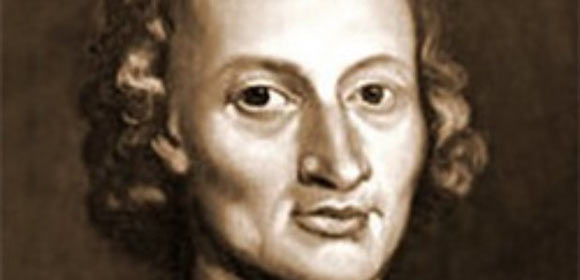
Johann Pachelbel was a German organist and one of the most important composers of the Baroque era due to his contributions to the chorale prelude and fugue. He was greatly influenced by his German counterparts, including Johann Jakob Froberger and Johann Kaspar Kerll.
Pachelbel was born in Nuremberg, Germany. His date of birth is unknown; however, church records show that he was baptized on September 1, 1653. As a child, he studied the basics of the ‘Nuremberg Musical Tradition’ under Heinrich Schwemmer, who would be later known as the chief singer of the St. Sebaldus Church. Some sources state that Pachelbel demonstrated extraordinary intelligence, as well as remarkable musical ability. However, due to financial difficulties, he was forced to complete his college education on scholarship at the Gymnasium Poeticum. The Gymnasium, greatly impressed by Pachelbel’s musical prowess, granted him the permission to study under Kaspar Prentz, with whom he explored the music of Kaspar Kerll and Giocomo Carissimi.
In 1673, Pachelbel would be appointed at the Saint Stephen Cathedral as a deputy organist. During his time there, Pachelbel explored the musical tradition of Vienna. Then, in 1677, Pachelbel served as court organist for Daniel Eberlin, who in turn was in service of the Duke of Saxe-Eisenach. Eberlin, in a testimonial for Pachelbel, wrote that he was “a perfect and rare virtuoso”. Pachelbel then moved to Erfurt, a place where he ultimately established himself as one of the most important composers of his time. He also taught the eldest brother of Johann Sebastian Bach, Johann Christoph Bach in Erfurt.
Pachelbel was exceptionally successful as an organist. Some sources state that he wrote over two hundred works for the organ. He was also highly prolific as a vocal music composer, a genre for which he wrote forty large scale works, and about a hundred works in all. Almost half of Pachelbel’s surviving works consist of chorales and chorale preludes. He was also known for his remarkable fugue compositions, as of now, historians agree that he wrote about thirty free fugues and ninety Magnificat Fugues. Apart from fugues, he was also a noted composer of variations, chaconnes, and toccatas, fantasia, and preludes.
Pachelbel is most famous for his Canon in D Major. It was originally written for three violins and a basso continuo, but later composers have transcribed it for many instruments. The work was highly famous in the 1900s and the 2000s, it was used by Pop Band “The Pop Tops” and by Werner Herzog for his movie “Jeder fur sich und Gott gegen alle-Kaspar Hauser”. It was also transcribed and rearranged for the electric guitar by Taiwanese composer JerryC, and the work bears the name “Canon Rock”, today, it is considered to be one of the most popular tunes in rock. His other highly famous works included his Chaconne in F Minor, which is also considered to be his best organ piece. Pachelbel virtuoso standing is also exemplified in his Tocotta in E Minor, which is characterized by fast passages, thus requiring the player to exhibit perfect and almost lightning like dexterity.
Johann Pachelbel died in Nuremberg, Germany and was buried on March 9, 1706.